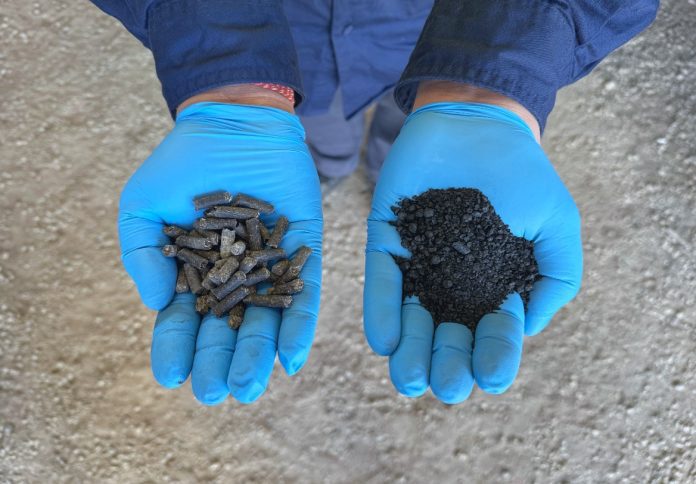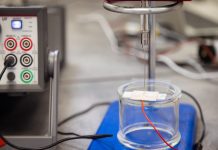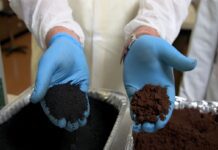
Australian technology developed at RMIT University is paving the way for more sustainable and cost-effective production of bio-oils, which could replace petroleum-based products in industries like electronics, construction, and automotive.
The technology, known as PYROCOTM, uses high temperatures in an oxygen-free environment to convert treated sewage, also known as biosolids, into biochar, a carbon-rich substance that can serve as a catalyst in producing phenol-rich bio-oil, as revealed in a news release.
PYROCOTM has been developed through years of collaboration between RMIT, South East Water, Intelligent Water Networks, and other water authorities.
It is now being applied to various circular economy initiatives. Recent research from RMIT, in partnership with the Indian Institute of Petroleum, published in Renewable Energy, reveals that biochar derived from biosolids can replace expensive catalysts traditionally used in extracting oil from biomass, such as the Willow Peppermint plant, native to Australia.
This breakthrough suggests that biochar from biosolids, produced using advanced pyrolysis technology like PYROCOTM, can offer a sustainable solution to reduce carbon dioxide emissions by replacing high-emission products.
The biochar’s use as a catalyst could support a steady supply of phenol-rich bio-oils essential for producing valuable chemicals like resins, lubricants, and additives used across various industries.
The researchers were able to produce bio-oil containing high levels of phenolics (69%) and hydrocarbons (14%) in their experiments, demonstrating the efficacy of biochar as a catalyst. The team’s findings open the door to scaling up the technology to meet industry demands.
Professor Kalpit Shah, Deputy Director of the ARC Training Centre for the Transformation of Australia’s Biosolids Resource at RMIT, noted that PYROCOTM is nearing commercial readiness.
In collaboration with Aqua Metro, South East Water, and Iota, RMIT has secured $3 million in funding from the Australian Government to construct a commercial-scale demonstration plant (Mark-3) at a South East Water recycling facility next year.
Shah emphasized that the project aligns with Australia’s National Waste Policy Action Plan and aims to address the challenge of PFAS contamination in biosolids by converting them into PFAS-free biochar for various applications.
“According to an International Biochar Initiative report, biochar will have a global market potential of $3.3 billion by next year, showcasing a truly circular solution,” he said.
The project is also in line with the stricter PFAS regulations outlined in the recently introduced PFAS National Environment Management Plan 3.0 (NEMP 3.0).
South East Water is contributing $3 million in funding, with additional support from other partners, for this $11 million project that is expected to have far-reaching environmental benefits.
PYROCOTM technology has already been successfully trialed in several phases, including at the Melton Recycled Water Plant, where it processed biosolids from five Australian water utilities to create biochar. RMIT and its partners are continuing trials, with plans to process more biosolid feedstocks in the coming months.
Lara Olsen, Managing Director of South East Water, described the latest PYROCOTM trials and the upcoming demonstration project as significant milestones for environmental sustainability and innovation in the water sector.
“We’re tackling a national challenge by harnessing cutting-edge technology with the potential to destroy 99.99% of PFAS in biosolids,” Olsen said.
Manish Pancholi, CEO of Aqua Metro, expressed enthusiasm for leading the commercialisation of PYROCOTM technology.
“We see a unique opportunity for this technology to provide significant decarbonisation, environmental, and circular-economy benefits to the water industry and potentially other sectors,” he said.
The most recent study from RMIT was conducted in collaboration with Dr. Thallada Bhaskar’s research group at the Council for Scientific and Industrial Research – Indian Institute of Petroleum.
The study, titled “Role of carbo-catalyst on upgrading the pyrolysis vapors of spent Eucalyptus nicholii biomass: Towards sustainable phenolics production,” is published in Renewable Energy (DOI: 10.1016/j.renene.2025.122468).




















